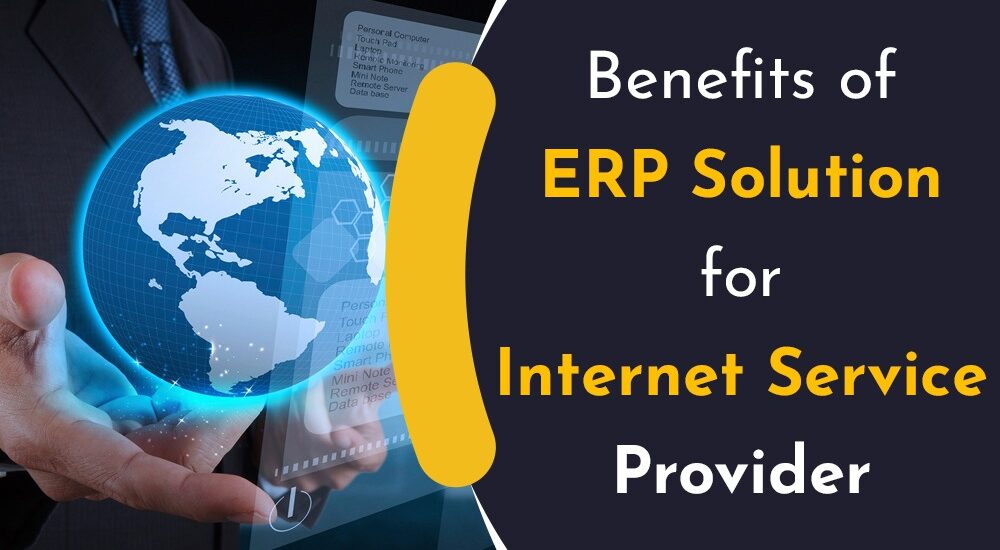Benefits of ERP Solution for Internet Service Provider
-
July 27, 2021
- Posted by: Pradeep
- Category: ERP for internet services
No Comments

- July 27, 2021
- Posted by: Pradeep
- Category: ERP for internet services

In the modern business world’s scenario, ERP systems have become integral and inevitable parts of the day-to-day operational management. They are highly used across businesses and industries. This is why an ERP solution for Internet Service Provider is gaining rapid popularity. The ultimate purpose of an ERP system is to produce a self-contained platform that acts as a central workforce for an organization while also optimizing data flow throughout all business processes.
Customization is one of the most important aspects of an ERP solution since it allows an organization’s complicated business processes to be readily integrated into the system. Aside from that, an ERP system may integrate with other apps or move the data from any device, allowing you to stay on top of your business activities.
What Does ERP Solution Actually Mean?
ERP stands for Enterprise Resource Planning that utilizes the online platforms and services in order to deliver an easy-going business process for an ISP.The term “cloud computing” refers to the delivery of a hosted service over the Internet that allows users to use an ERP program from anywhere in the globe, allowing business functions to be managed via the web or any device.
An ERP solution for Internet Service Provider is helping them in several manners. We will discuss its advantages in the next sections of this post:
Advantages of ERP Solution for Internet Service Provider
There are multi-faceted benefits of an ERP solution for ISPs. Some of the main advantages are described in the below-given list:
1: Uninterrupted Customer Service
The flow of real-time data from many sources allows for quick and seamless client assistance. When all the information is managed by an efficient ERP solution, order tracking and fulfilment can be done efficiently. Besides, it can also play a vital role in inventory management and keeps you updated with the quantities on hand.
2: Real-time Revenue Recognition
Payment collection is ensured by the ERP system via numerous channels (direct bank, payment gateway, online banking), and these channels send real-time entries to the central system, allowing the payment to be recognized quickly upon collection.
3: Centralised System
A central ERP system oversees all branches, projects, and points of presence (POPs), assisting in the achievement of corporate objectives while remaining compatible with cutting-edge technology. Besides, a number of important business affairs can be streamlined with an ERP solution for Internet Service Provider.
4: Quick Fault Detection
ERP solutions provide a smart technique to find the full problem and assure adequate data management for the internet service offered to customers as well as proper corporate accounting administration.


